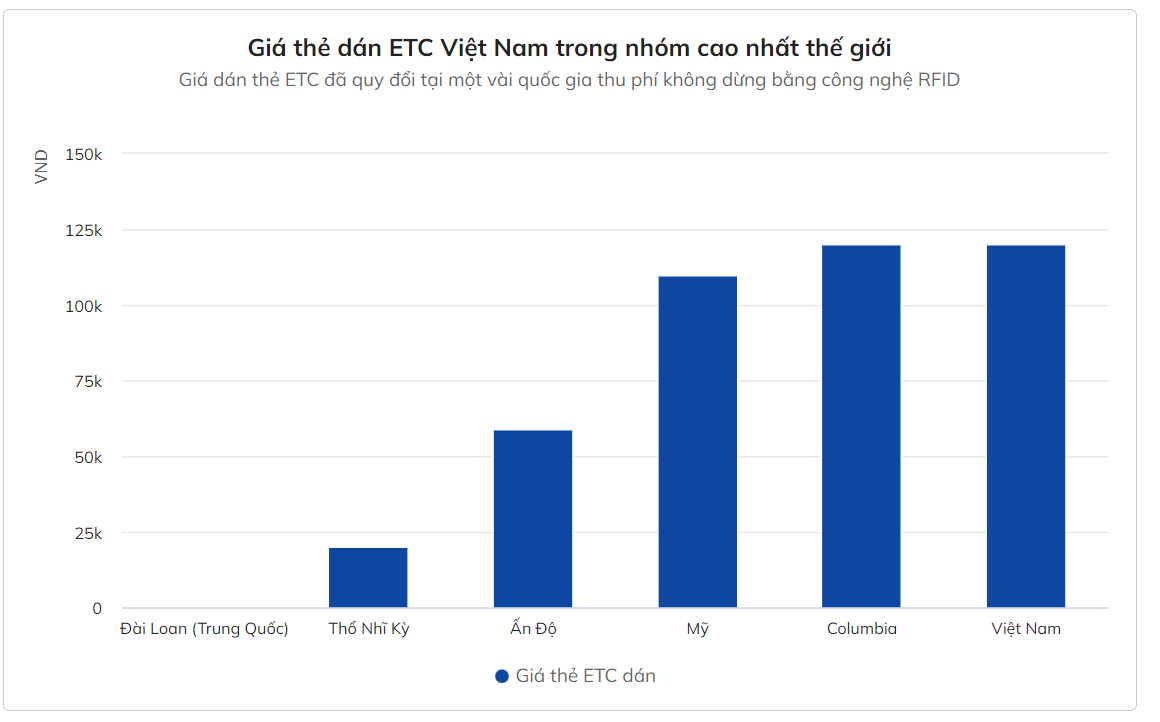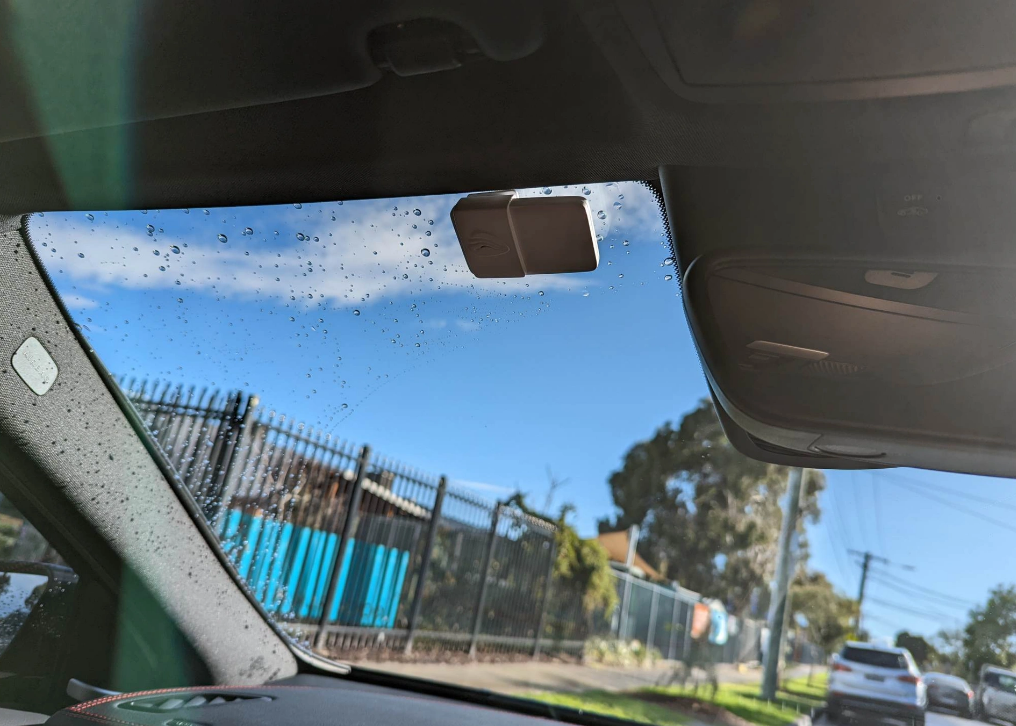Vietnam's non-stop toll cards among the most expensive in the world
The price of 120,000 VND/card pasting has put Vietnam among the countries with the most expensive ETC card prices using RFID technology in the world.
According to a survey, in countries that use RFID technology, attaching e-tags to vehicles, the cost of attaching and registering to use automatic toll collection services also has a certain difference.
In some states in the US, automatic toll collection can be flexibly used through E-PASS sticker sets. Users can order from e-commerce platforms such as eBay, Amazon and complete the registration procedure online.
Mostly cheaper than Vietnam
Specifically, the E-PASS sticker kit at home used by people in states such as Georgia, Florida, and New York costs 4.69 USD, equivalent to 110,000 VND.
After pasting and completing registration, people can move non-stop through toll booths. Traffic cameras will record the license plate number, then send a bill home with many forms of payment.
In Colombia, Copiloto - the name of the non-stop toll card in this country - also costs about 20,000 COP, equivalent to 120,000 VND. However, in addition to paying when passing through the highway stations, the Colombian system also allows car owners to pay for parking through the non-stop toll card (ETC).
 |
In India, from January 15, 2020, FASTag service is mandatory for all types of vehicles. People need to pay about 200 Rupees, approximately 59,000 VND for the first time of FASTag. Accordingly, the account needs to have a minimum of 100 Rupees, approximately 30,000 VND to maintain use.
The FASTag will be affixed directly to the vehicle's windshield and as soon as the vehicle passes through the toll booth, the toll will be deducted from the bank account or prepaid wallet linked to the card.
In particular, in Taiwan (China) or Türkiye, the cost for the first ETC card is almost free or very cheap. After conversion, car owners in Türkiye only have to pay about 20,000 VND for the first card.
In Taiwan, when there is a need to use the service, the car owner only needs to bring the ARC residence card and the vehicle registration license, the eTag card will be issued free of charge. After that, the car owner can top up the card via cash at the stations, with a minimum fee of 312,000 VND or through electronic wallets.
Advantages of RFID stickers
Particularly for countries that do not use RIFD technology to implement automatic toll collection, vehicle owners will have to equip an ETC card reader directly attached to the vehicle at a quite high price.
Typically in Singapore, this system operates based on 3 main components, including ERP portals on the road, toll collection devices mounted on vehicles (In vehicle Unit, IU) and automatic traffic toll payment cards (CashCard or EZ-Link).
The automatic toll collection system in Singapore is installed on the vehicle with a fee of about 155 SGD, equivalent to 2.6 million VND. Regarding the automatic toll card, the vehicle owner can top up and start using it or pay online through an electronic wallet directly linked to the bank card.
 |
| ETC card readers currently used in Australia use ERP technology. |
Similar to Singapore, Australia also applies Electronic Road Pricing (ERP) technology in its automatic toll collection model. Every car in Australia is installed with a free toll collection device, but if the device is damaged or lost, the car owner will have to buy it back for 120 AUD, about 2 million VND.
Since July 25, Digital Communications Joint Stock Company (VDTC - ePass) has officially collected fees for the first time of ETC card pasting. Following that, Automatic Toll Collection Company Limited (VETC) has also stopped the free service of non-stop toll collection card pasting since August 6.
The price that businesses offer for the first time of tagging and replacement tagging is 120,000 VND/time.
VDTC representative said that among the approximately 1 million cars currently circulating in Vietnam that have not yet been fitted with ETC tags, there will be approximately 600,000 cars that do not need them because they are special vehicles such as buses, cars in factories, and cars that are not allowed to travel on highways.
"Of the 1 million vehicles that have not yet been tagged, the number of vehicles that do not need to be tagged is likely to be known best by the Registry. As for the remaining 400,000 vehicles, businesses will complete the application of ETC tags by around December," he said.
